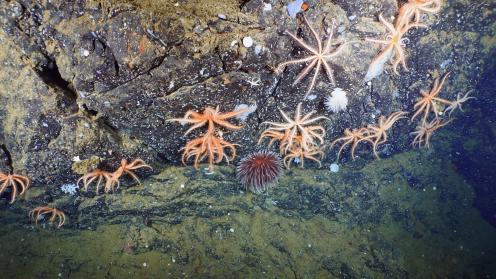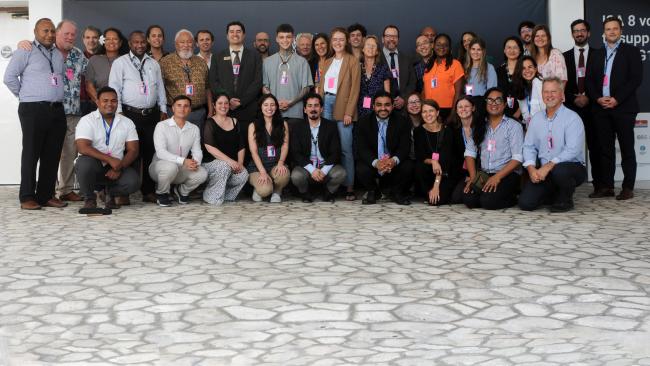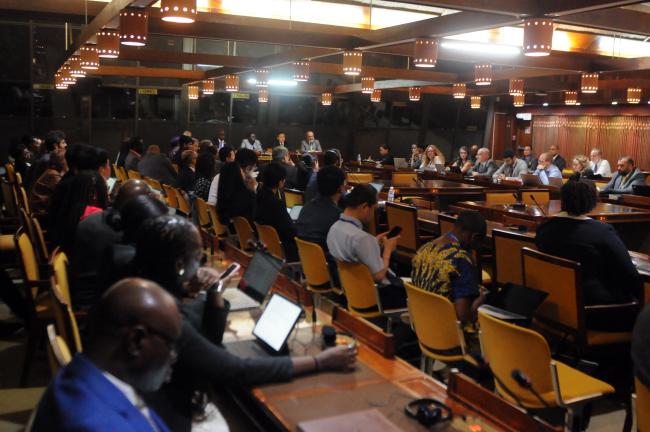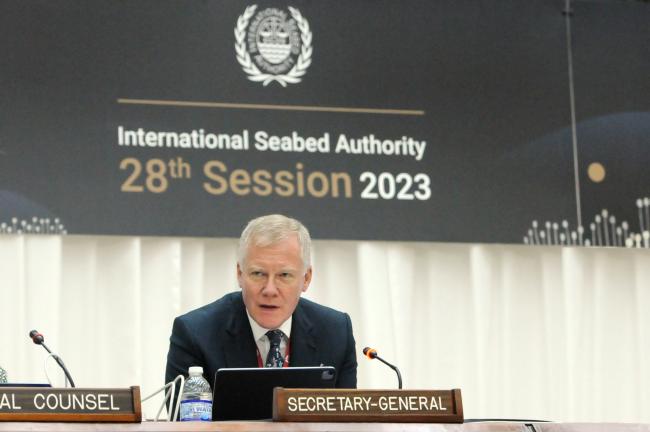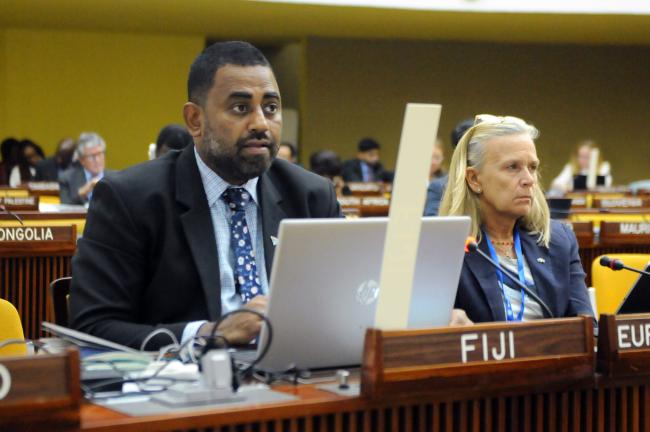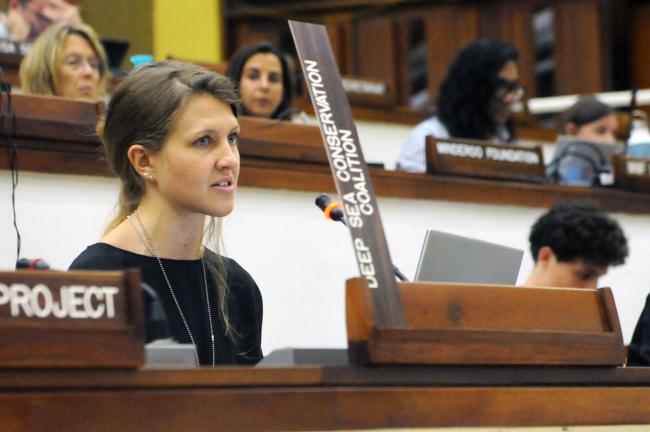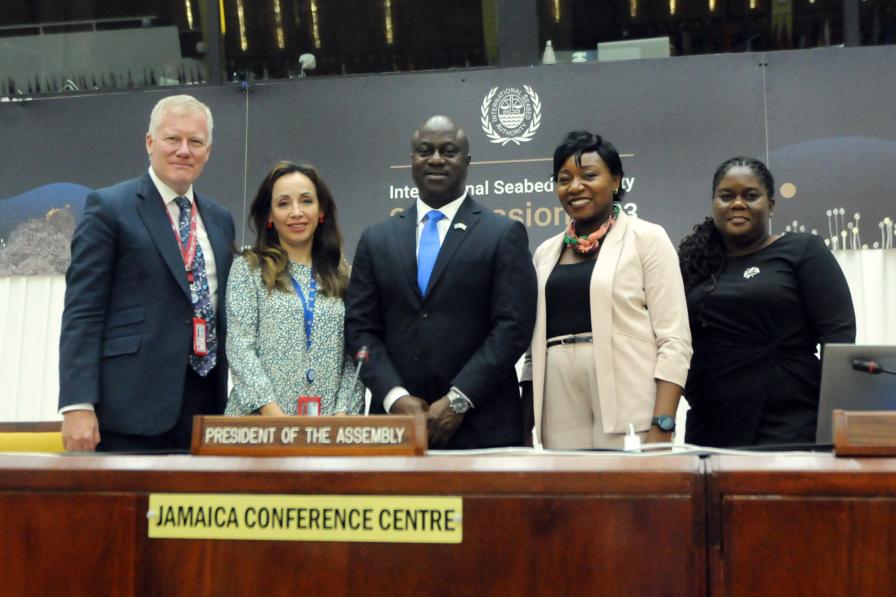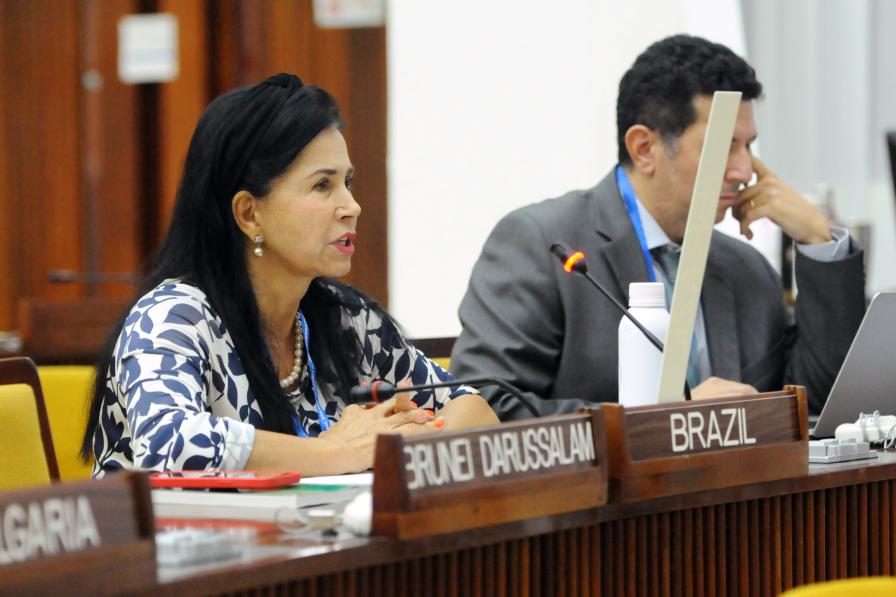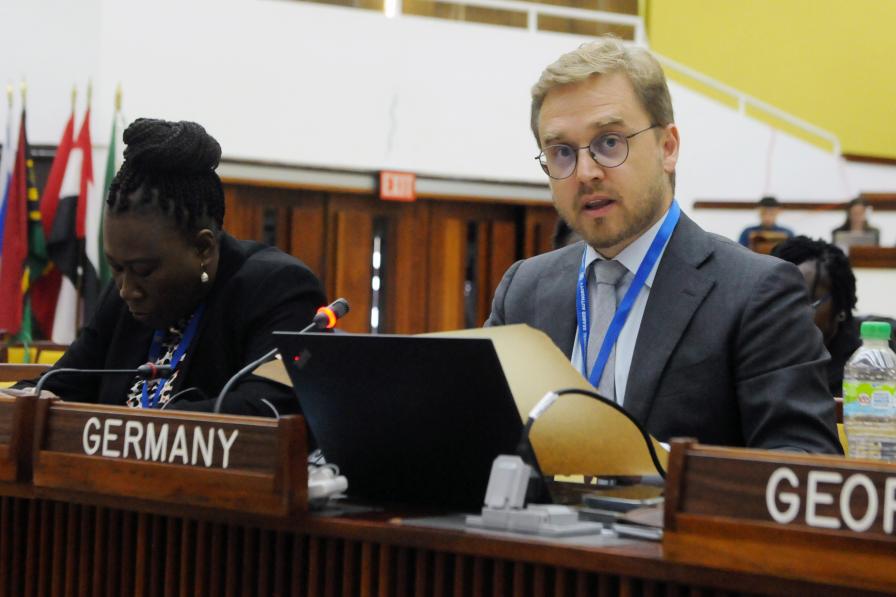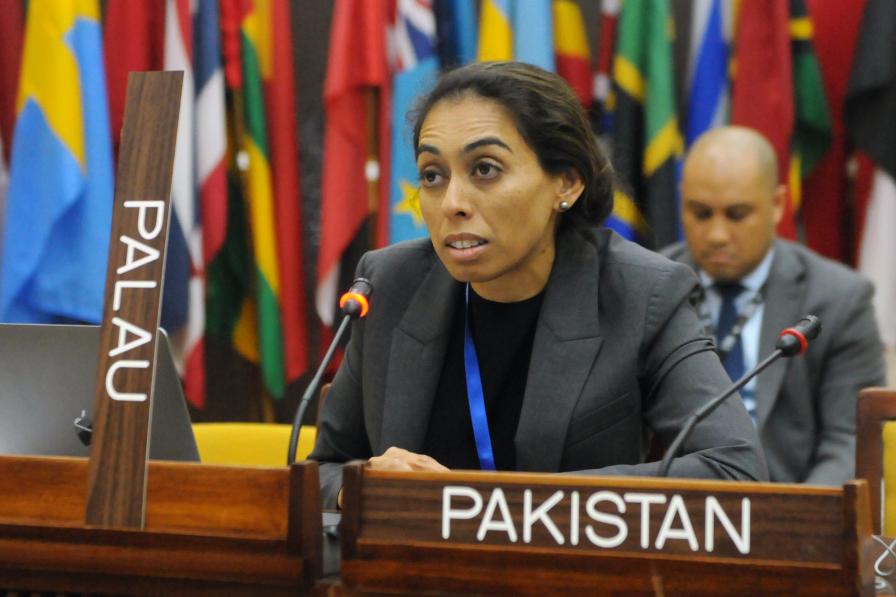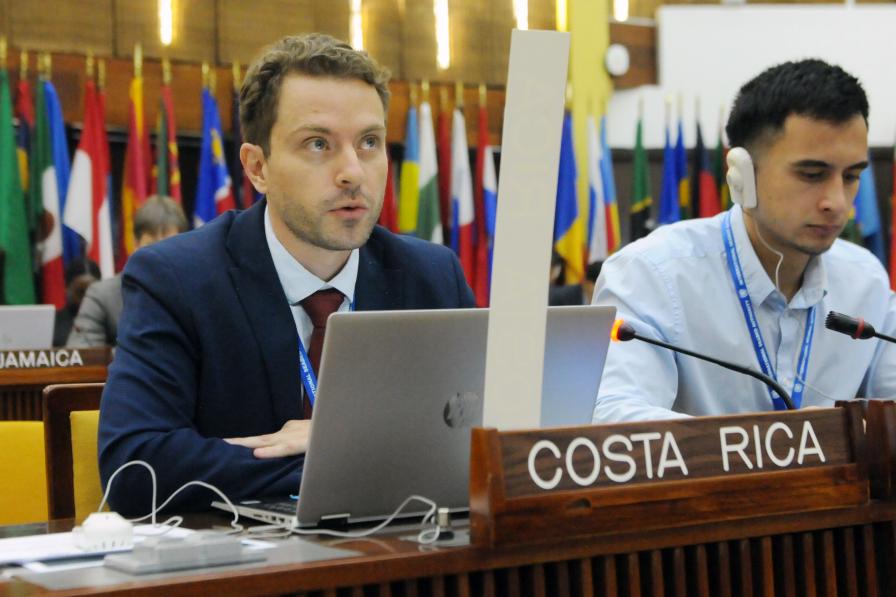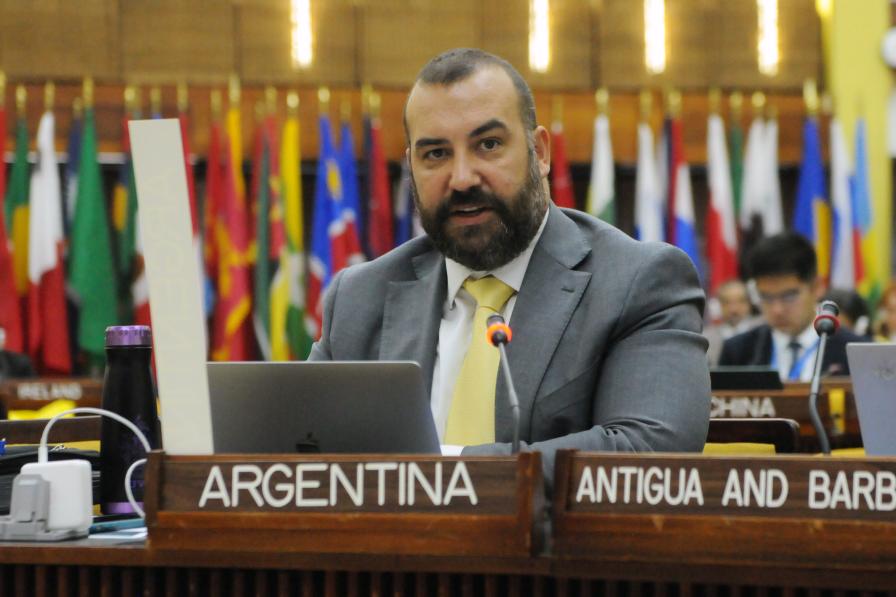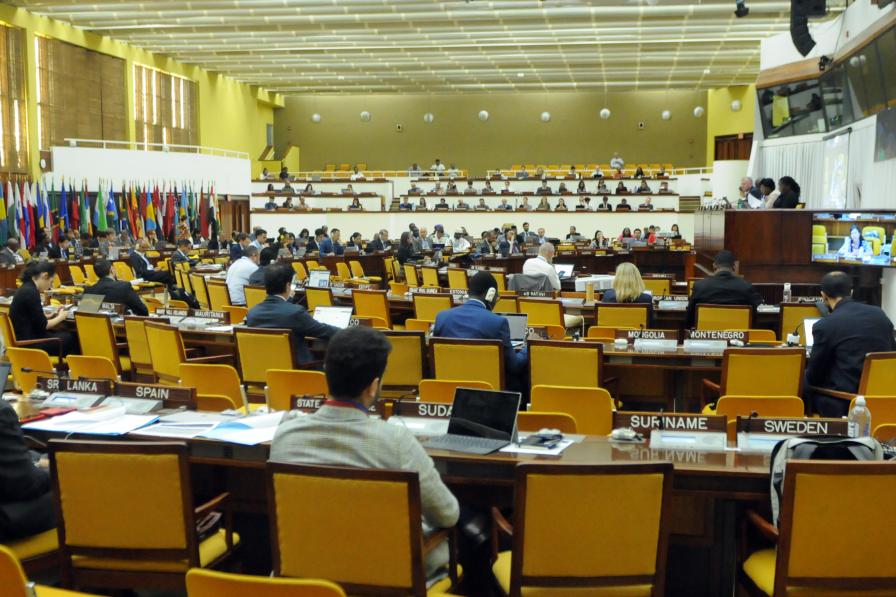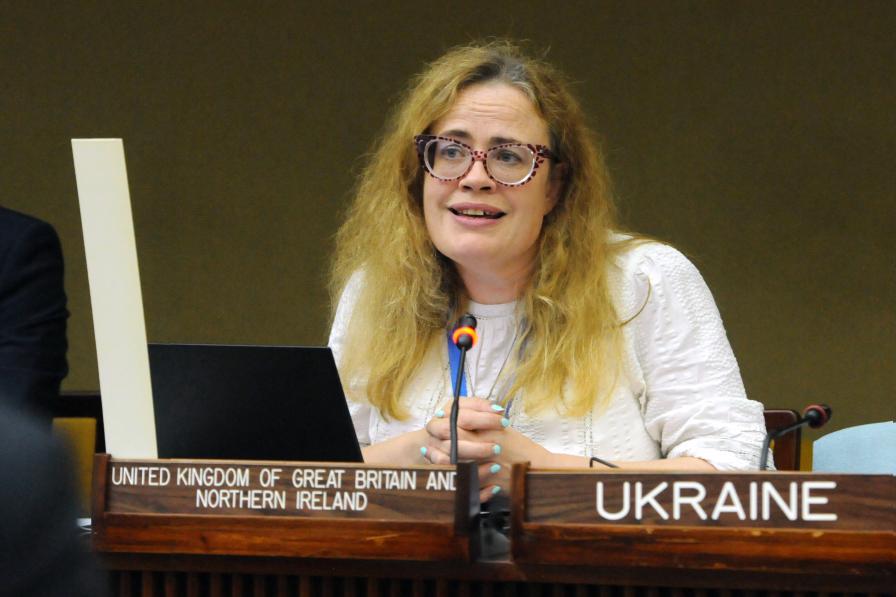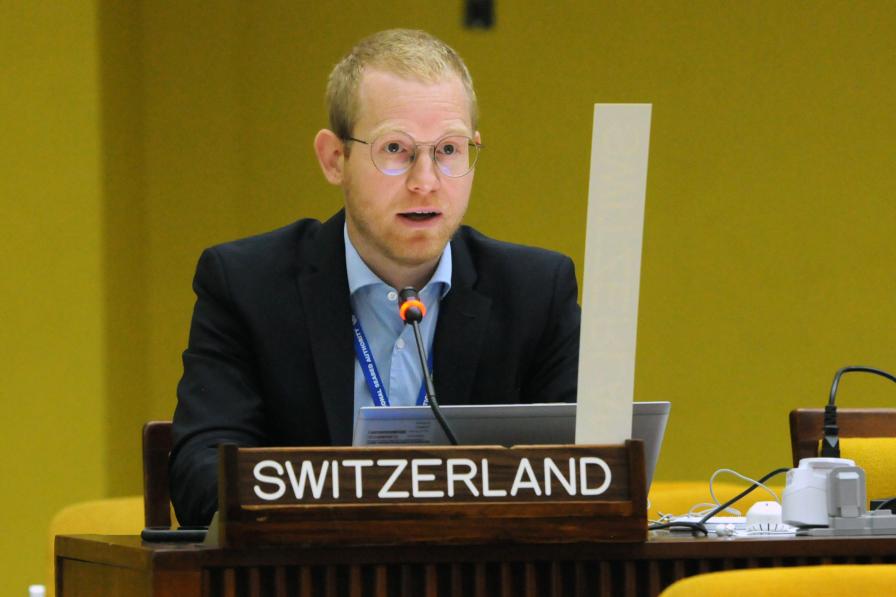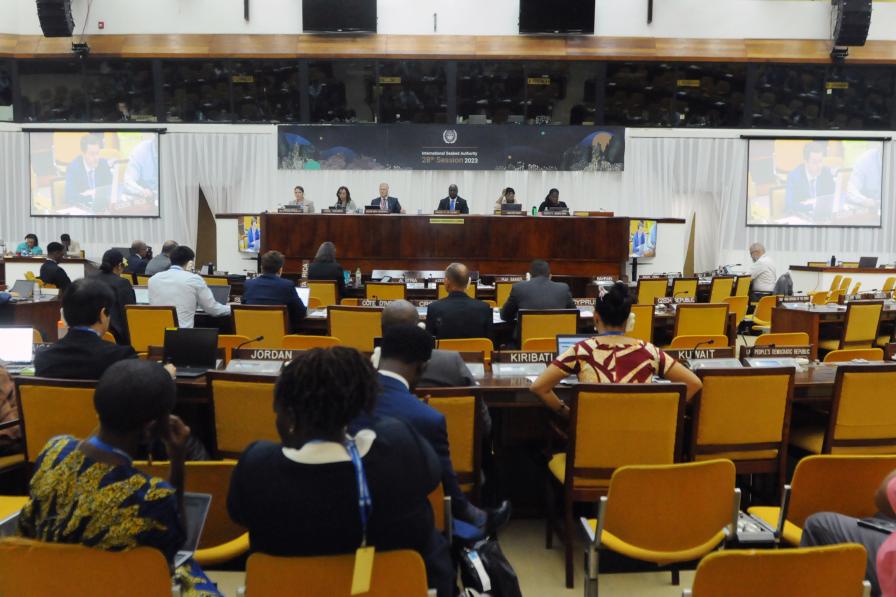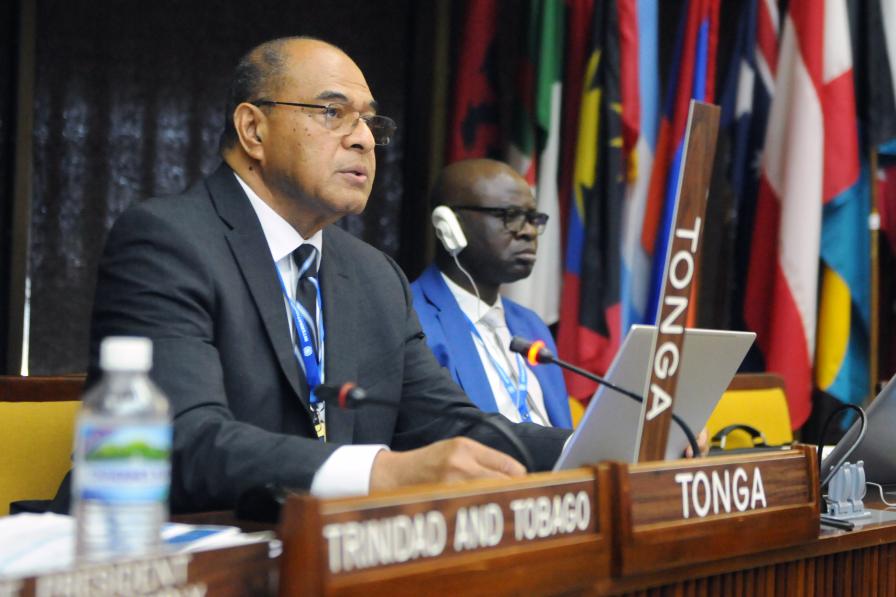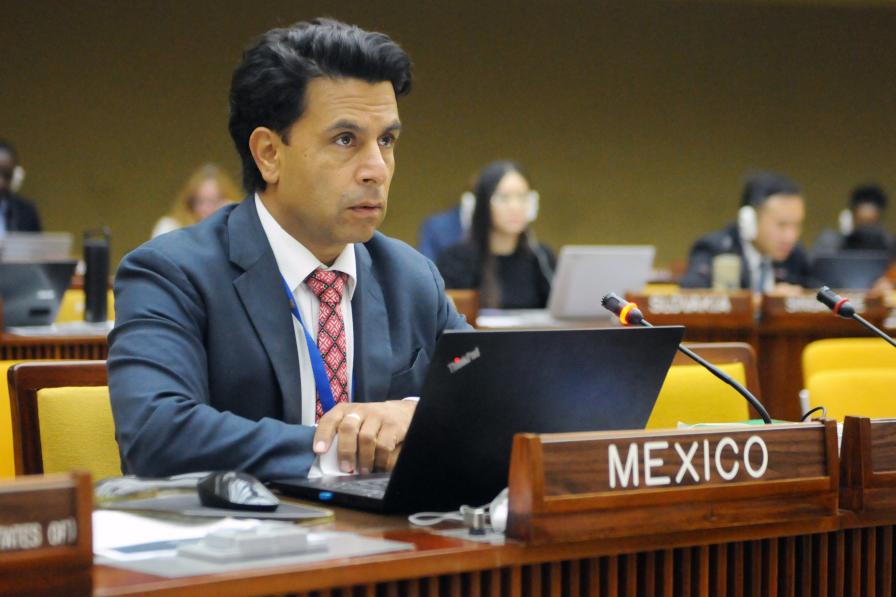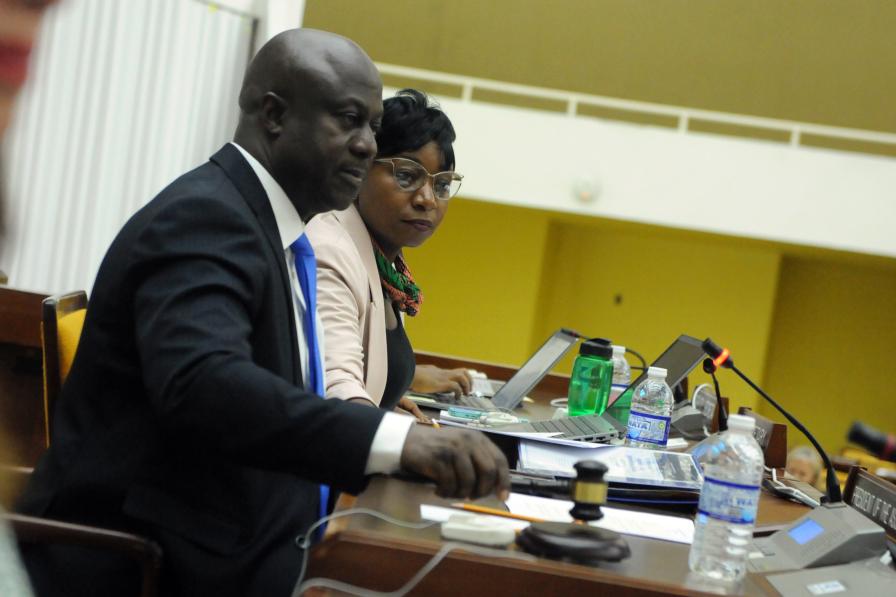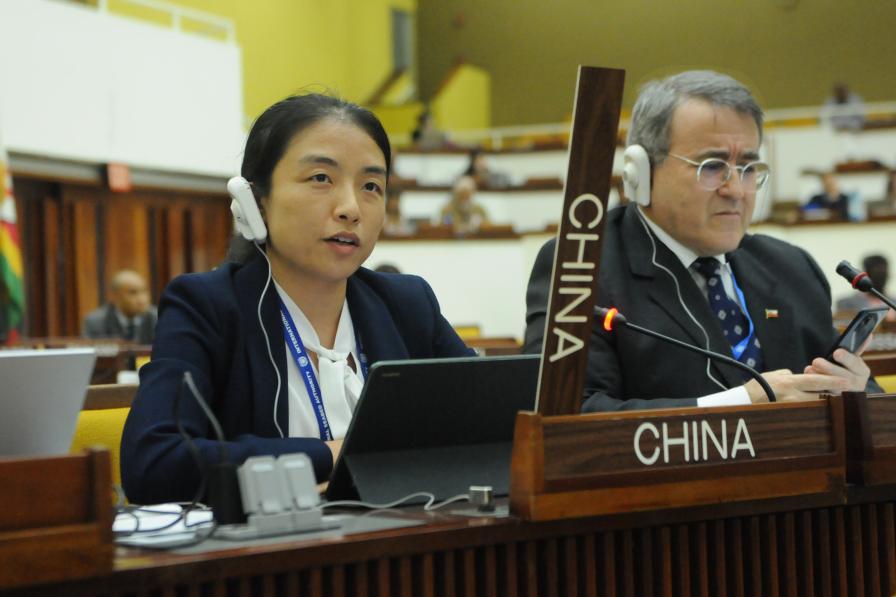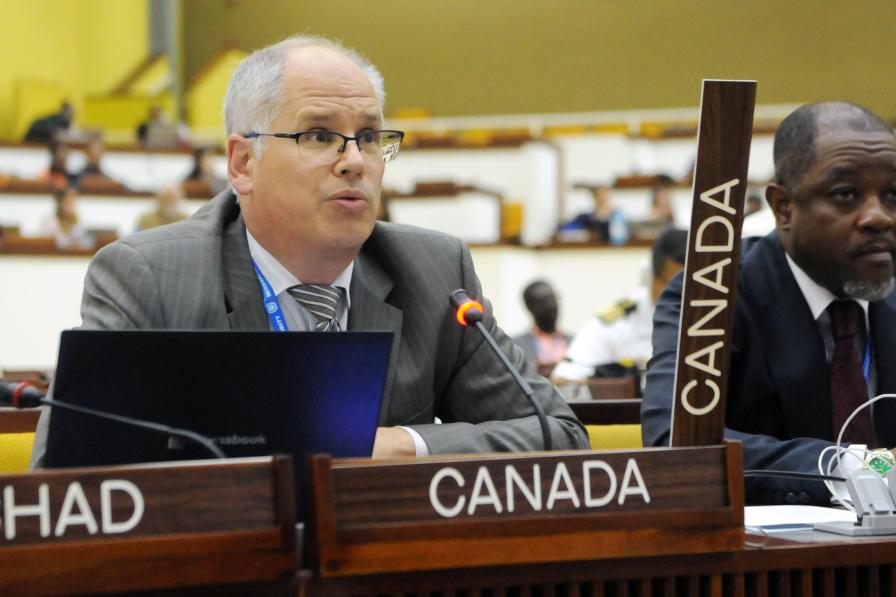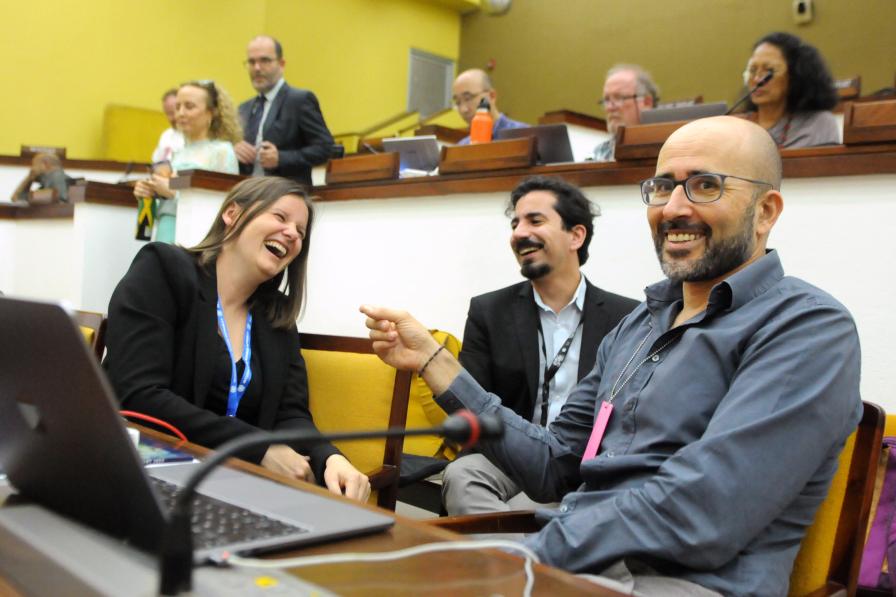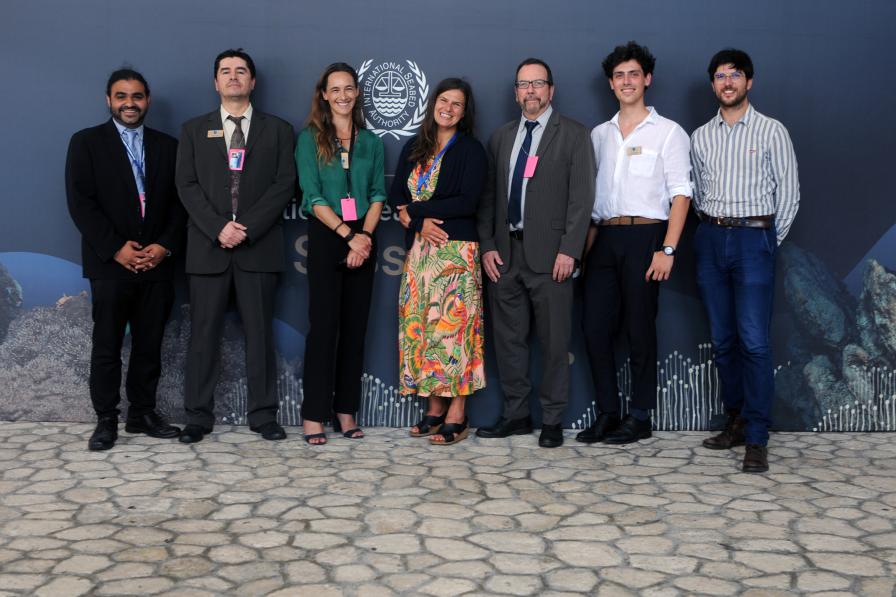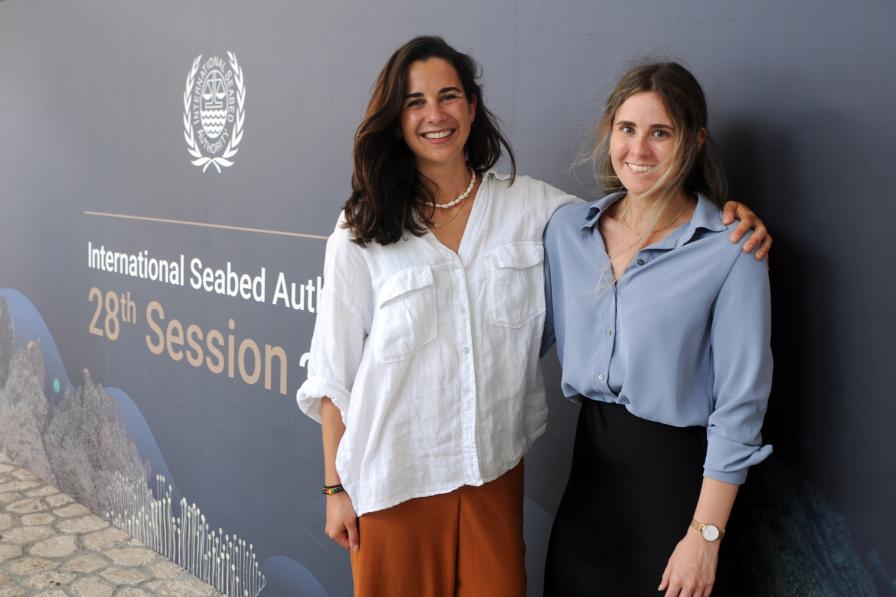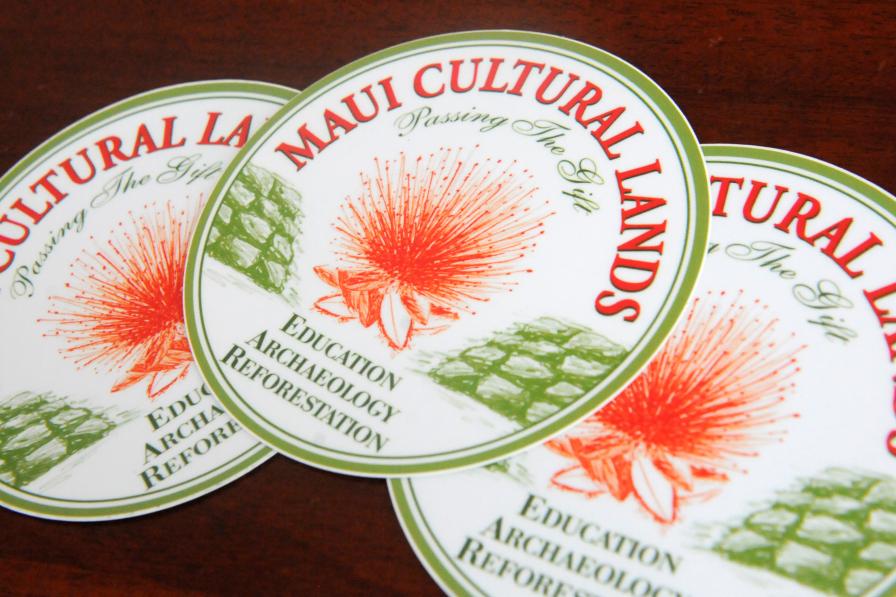Informal discussions continued during the penultimate day of the International Seabed Authority (ISA) Assembly in a final effort to reach consensus on the meeting’s agenda, with President Fanday Turay (Sierra Leone) warning delegates, “We all stand to lose if no decision is taken.”
The two controversial, complementary agenda items address:
- the establishment of a general policy by the Assembly related to the conservation of the marine environment, including in consideration of the effects of the two-year rule, proposed by Chile, Costa Rica, France, Palau, and Vanuatu; and
- terms of reference for the periodic review of the international regime of the Area pursuant to Article 154 (periodic review) of the UN Convention on the Law of the Sea (UNCLOS), put forth by Germany.
During a brief discussion in plenary, Assembly members revealed they reached consensus on including the periodic review item on the agenda. Consensus was still elusive on the establishment of a general policy on the conservation of the marine environment. Delegates continued their informal discussions into the evening in an effort to find common ground.
In the morning, Assembly members considered the strategic plan for the period 2024-2028. Secretary-General Michael Lodge presented the draft strategic plan, highlighting that it is based on the provisions of the 1994 Agreement, which outline the functions of the Authority in the period before the approval of the first plan of work for exploitation, fully reflecting the evolutionary approach. He stressed the first draft went through a consultation period, and the draft presented for the consideration of the Assembly includes textual suggestions and comments received in due time.
Delegates appreciated the Secretariat’s hard work in developing the draft strategic plan. Germany, Switzerland, Portugal, and Belgium emphasized the adoption of the new strategic plan is premature and should be postponed. They stressed that: the Council should be given the opportunity to discuss the draft strategic plan, according to the 1994 Agreement; members had insufficient time to assess the strategic plan’s political and budgetary implications; and a periodic review should be conducted to inform its development before the new strategic plan’s adoption. Brazil and the UK noted insufficient time for consultations at the national level. Brazil supported postponing adoption and the UK expressed flexibility.
Fiji, on behalf of Cook Islands, Fiji, Kiribati, Nauru, and Tonga, supported the plan and its strategic directions, highlighting its aims to:
- strengthen the regulation framework in the Area;
- protect the marine environment;
- promote and encourage marine scientific research;
- develop and integrate the participation of developing countries; and
- develop the equitable sharing of financial and other benefits.
Argentina supported the draft strategic plan, emphasizing that strategic plans are essential for the ISA to fulfill its mandate. Mexico called for developing, as a strategic priority, a mechanism to collect, evaluate, and manage environmental data.
DSCC, on behalf of many environmental non-governmental organizations, supported postponing the adoption of the new strategic plan, suggesting broader consultations to: recognize the whole range of opinions, including those calling for a ban/moratorium/precautionary pause on mining; and include Indigenous leaders, the fishing industry, and other stakeholders.
Secretary-General Lodge and President Touray took note of the comments and suggested suspending further considerations until the discussions on the agenda are finalized.
Assembly members further agreed on the dates for the 29th Council and Assembly sessions. The Council will meet in three parts in March, July, and November 2024, while the Assembly will hold its annual session from 29 July-2 August 2024.
All ENB photos are free to use with attribution. For the 2nd Part of the 28th Annual Session of the ISA, please use: Photo by IISD/ENB | Diego Noguera
To receive free coverage of global environmental events delivered to your inbox, subscribe to the ENB Update newsletter.
Assembly

(L-R) José Antonio Cabedo, Chile; Jessica Battle, WWF International; Duncan Currie, DSCC; and Pradeep Singh, International Union for Conservation of Nature (IUCN)

Ichiro Shimogaite, Japan, and Solomon “Uncle Sol” Kaho‘ohalahala, Maunalei Ahupua‘a/Maui Nui Makai Network
Around the Venue

Khadija Steward, Gonzalo Daniel Cáceres Bartra, and Anne-Sophie Roux, Sustainable Ocean Alliance (SOA), with Siddharth Shekhar Yadav (second from right), Vanuatu
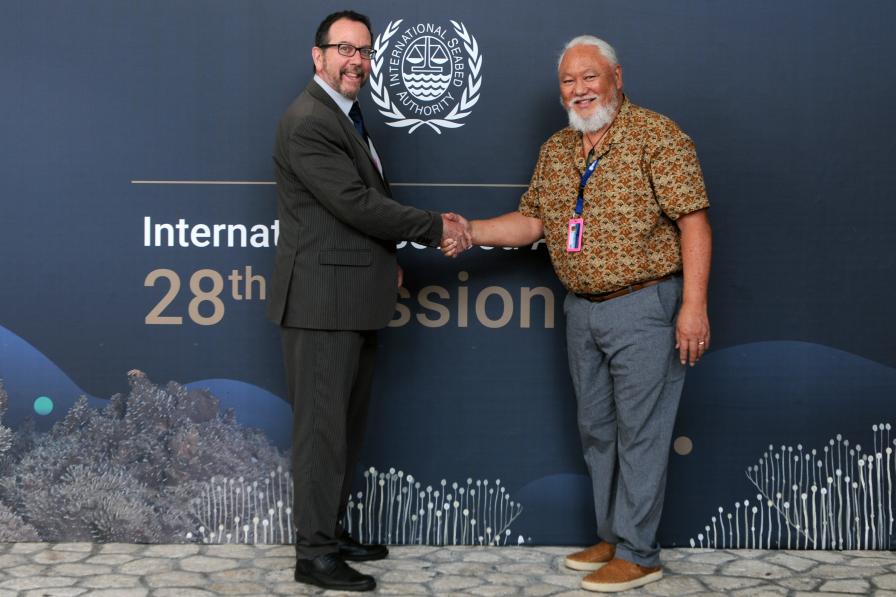
Matthew Gianni, DSCC, and Solomon “Uncle Sol” Kaho‘ohalahala, Maunalei Ahupua‘a/Maui Nui Makai Network
